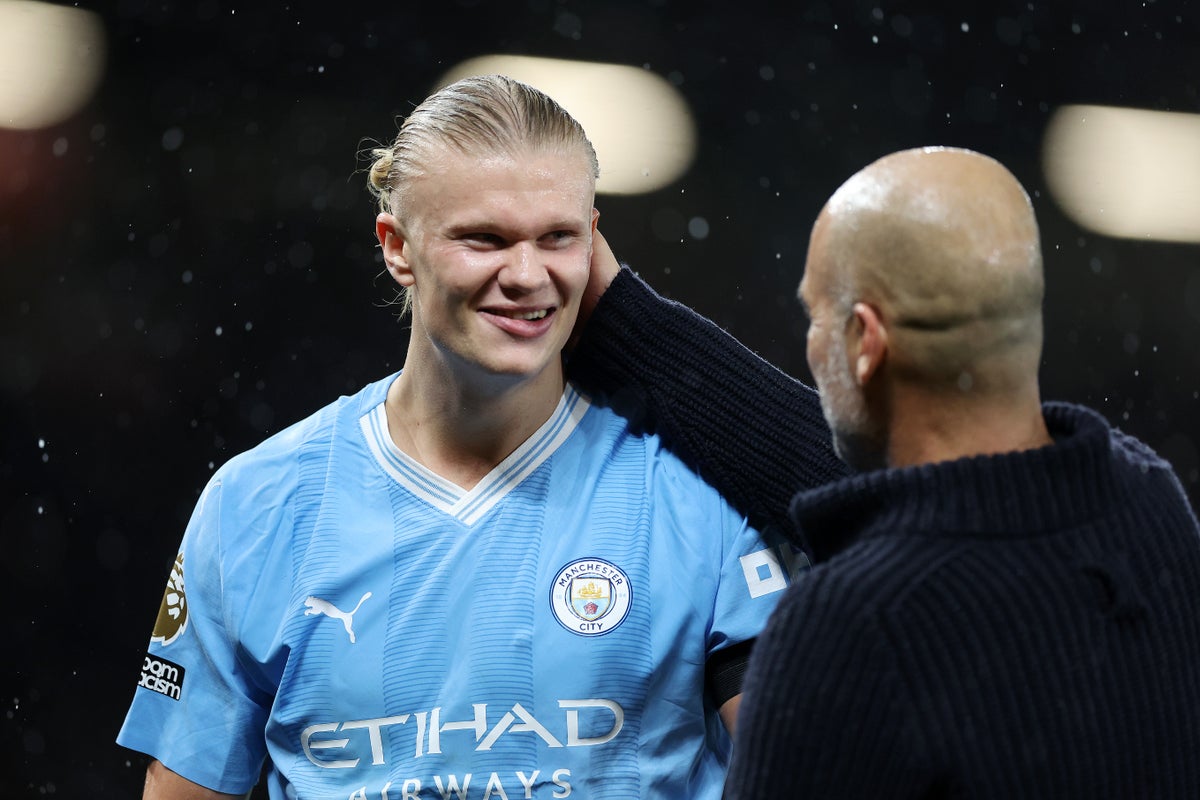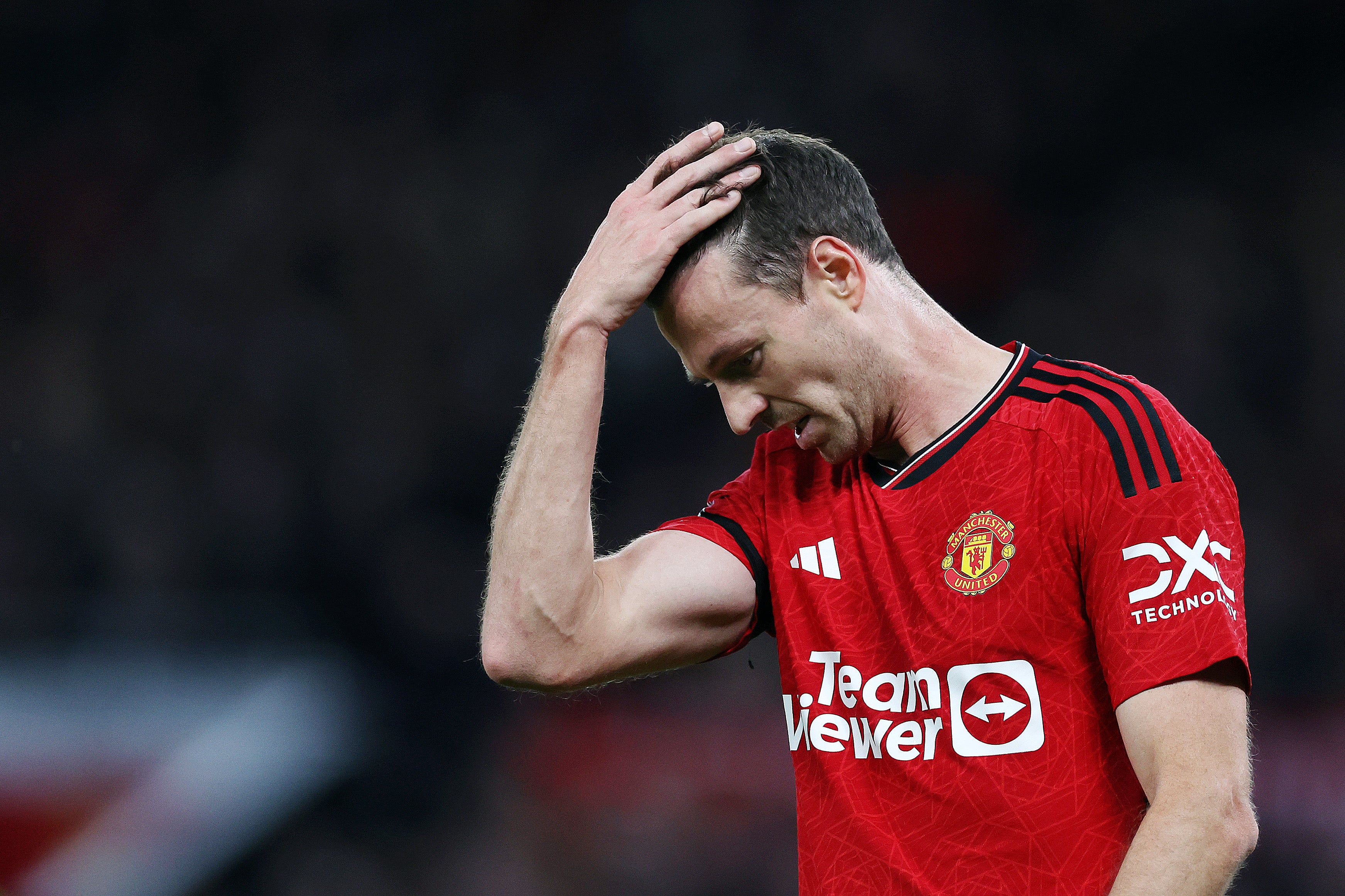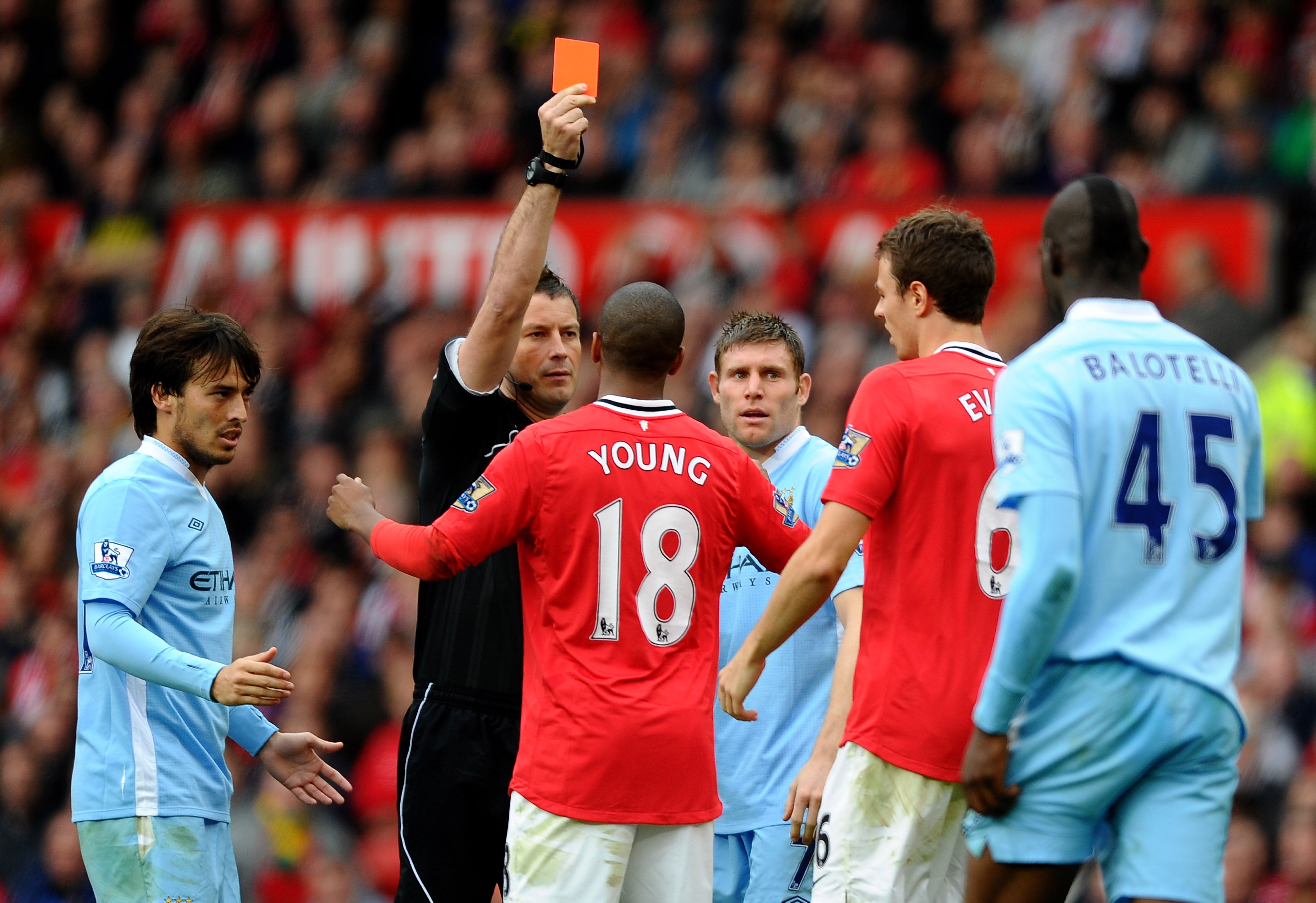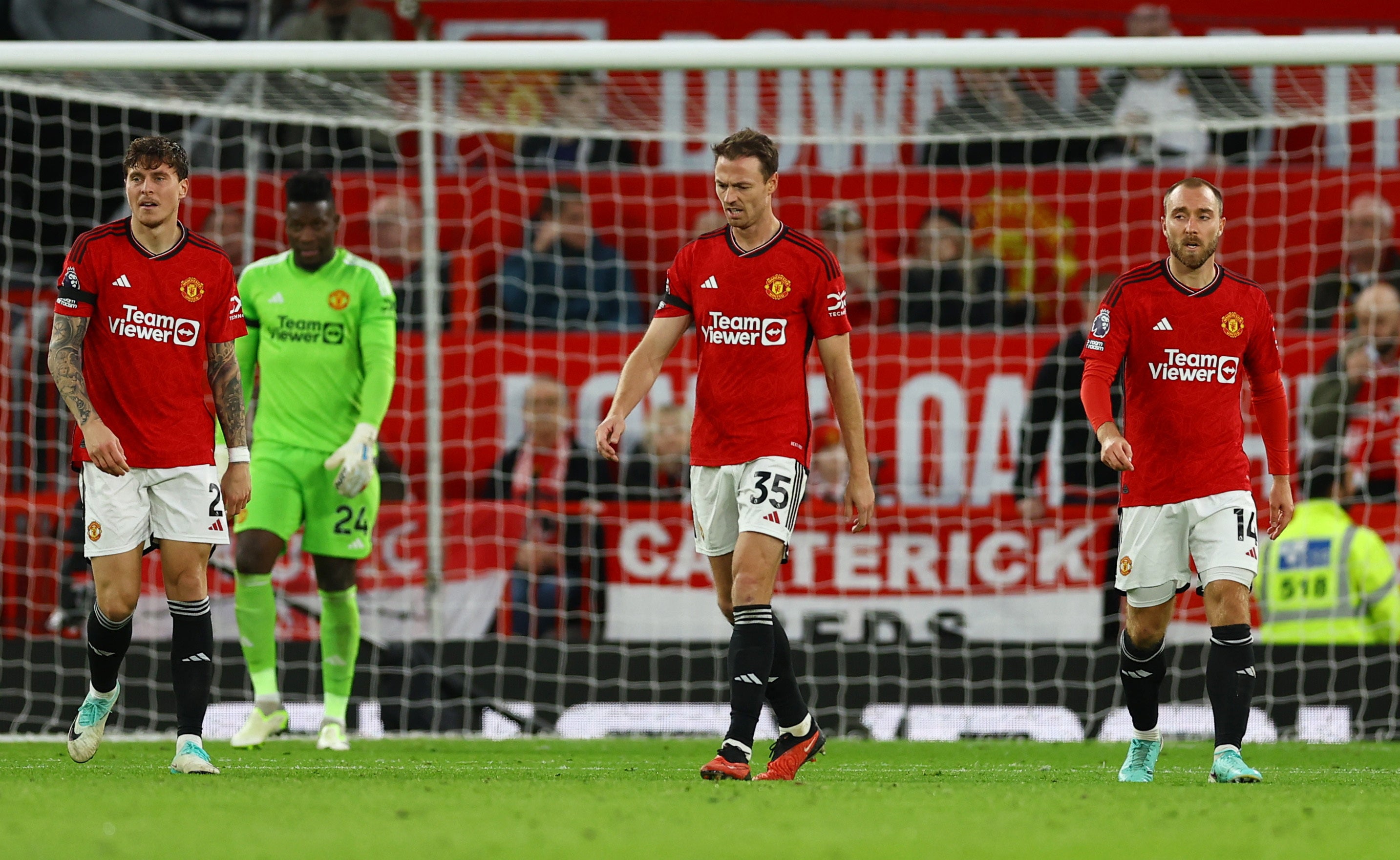
There was a time when Manchester City won at Old Trafford and it was Jonny Evans’ fault. This wasn’t it; not really, not when he was a cause of defeat but, more than anything, a symptom of Manchester United’s malaise. A decade into life after Sir Alex Ferguson, with well over £1bn spent, with more than £400m going on new players in Erik ten Hag’s reign, the man challenged with stopping Erling Haaland was Evans, the final throwback to Ferguson’s era.
Haaland escaped him and eluded him. Evans left him utterly unmarked to head in Bernardo Silva’s cross for his second goal, even if the mitigating factor was the presence of Rodri; he wandered off to police the Champions League final scorer instead. Evans left him again when Haaland set up Phil Foden for City’s third; when Andre Onana parried Rodri’s shot, Evans was caught dozing, the striker speeding past him to tee up the Mancunian.
Nor was Evans near Haaland when Onana made a brilliant save from the Norwegian on the stroke of half-time. When the forward darted in behind an altogether slower defender, the goalkeeper turned rescuer, clawing away a shot. Haaland was rampant. It was only Onana, with perhaps his best performance in a United shirt, who denied him a second derby hat-trick. And yet it was all eminently predictable. It was an unfair contest; but then it was always going to be. Evans did as well as could be expected, which is to say not very.
The thankless task may have been the impossible one; the most potent striker in the global game against a man who could have been retired by now. The broader problem may have been that United were in such a state of disarray that Evans were exposed; or, simply, that he was playing at all.

Thirty-five years old, relegated with Leicester last season, rejoining United simply to train with the reserves, Evans is an indictment: not of himself, but of his club. There was a romance to his return, the charming feel to a comeback. He was brilliant at Burnley; but not against Haaland.
City fans may have savoured the sight of him. Evans is an increasingly static reminder of one of the most famous Manchester derbies of all; a dozen years before he could not halt Haaland, he was unable to cope with Mario Balotelli. He was sent off for fouling the Italian before Roberto Mancini’s City ran riot to win 6-1 in 2011. That scoreline was unbelievable, this one eminently believable. It was generic, mundane, maybe even forgettable.

There was an era when there was no such thing as a normal derby win for City. They did not triumph at Old Trafford when the late Sir Bobby Charlton was in his forties, fifties or sixties. When Evans emerged, the balance of power in Manchester was very different. In his first Manchester derby, City’s attack featured Felipe Caicedo.
Caicedo’s City career brought seven goals, four fewer than Haaland has in this embryonic Premier League season alone. Such scoring feats can be built on his towering physique but they stem, too, from a capacity to identify weakness. As a left-footer, his natural tendency is to head left, to go up against the right-sided centre-back; it was something that Wolves manager Gary O’Neil noted, and factored in as his defenders doubled up on Haaland at Molineux. But if United’s right-sided central defender, Harry Maguire, has not always been a pillar of strength, he was flanked by Evans, by the footballing pensioner. And so, with a certain predictability, Haaland decided to isolate himself against the veteran rather more often.

The crucial defensive error, however, came from a £72m striker, Rasmus Hojlund needlessly conceding a penalty for an unsubtle grab at Rodri. Evans, meanwhile, was pitched into a battle he was never going to win. If it seemed that Ole Gunnar Solskjaer was the United manager who was a sucker for nostalgia, Ten Hag turned back to the past.
His defensive choices – and Raphael Varane’s omission – were for “tactical” reasons, the manager claimed. Certainly that strategy had the benefit of surprise, even if City showed few signs of being disconcerted by it. It has been a chastening campaign for many of United’s supposed stars, as Casemiro and Marcus Rashford can testify. Ten Hag still had other options: he picked Victor Lindelof at left-back and then removed him, leaving Evans on for further torment.
Meanwhile, Sofyan Amrabat, a rather more heralded Ten Hag signing, was hauled off at half-time for the second time in five days. He had been booked, entirely deservedly, despite asking referee Paul Tierney: “Why me?” He wasn’t quite channelling Balotelli in 2011, and the T-shirt that read: “Why always me?” Then, Evans’ desperation brought a red card. Twelve years on, the referee could not offer respite. His punishment was to complete 90 minutes.







